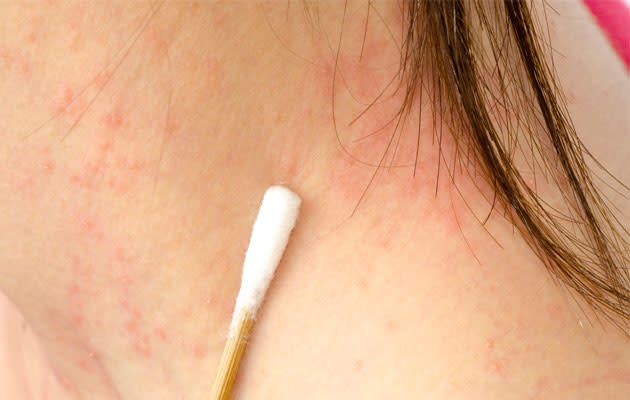 Fit to Post Health
Fit to Post HealthWho gets psoriasis and why?
Health Xchange's articles are meant for informational purposes only and cannot replace professional surgical, medical or health advice, examination, diagnosis, or treatment.
Psoriasis is a chronic skin condition characterised by thick red patches with flaky silvery scales that can be mistaken for dandruff when occurring on the scalp.
Psoriasis can affect any part of the skin, in particular the knees, elbows, hands, feet and lower back. In severe cases, the patches can be accompanied by painful joint swelling as well as joint disfigurement.
“Psoriasis patches can range from minor dandruff-like scaling to major eruptions covering large areas of skin,” says Dr Pang Shiu Ming, director and senior consultant, Dermatology Unit, Singapore General Hospital (SGH). “In its severe form, psoriasis can be incapacitating, significantly affecting the patient’s quality of life. In rare occasions, very severe psoriasis can be life-threatening.”
In Singapore, an estimated 40,000 people suffer from the disease, according to the Psoriasis Association of Singapore. Psoriasis can affect men, women and children at any age, though it has been found to be more common between the ages of 15 and 45.
Psoriasis symptoms
Most psoriasis patients have mild to moderate symptoms which are likely to wax and wane, appearing and disappearing in cycles. Psoriasis symptoms may flare up for a few weeks or months and then disappear for some time, even going into remission for some years. However, in most cases, the psoriasis symptoms do eventually recur.
A small number of patients suffer from the severe and persistent form of the skin disease.
Related article: Itching down there? How to know if it’s STD or not
Mild and moderate psoriasis symptoms include:
Dry cracked skin prone to bleeding
Burning, itchy skin
Raised red patches with silvery scales (called plaque)
Severe psoriasis symptoms include:
Inflamed and itchy patches covering large areas of skin
Stiff, swollen and painful joints
Disfigured joints, commonly fingers and toes
Thickened, discoloured nails which may separate from the nail beds
Different types of psoriasis
The most common type of psoriasis is plaque psoriasis, in which patches can occur anywhere on the body. Other common types include nail psoriasis and scalp psoriasis.
Less common types include guttate psoriasis, localised pustular psoriasis, acropustulosis, palmoplantar pustulosis, palmoplantar psoriasis and inverse or flexural psoriasis. Erythrodermic psoriasis and generalised pustular psoriasis (Von Zumbusch) are life-threatening forms of psoriasis.
In psoriatic arthritis, the joints become painful and swollen.
Related article: Are you plagued by eczema, another itchy skin condition?
Psoriasis -- causes and triggers
Psoriasis is believed to be caused by a combination of genetic and environmental factors which affect the body’s immune system, causing its T-cells to attack healthy skin cells.
“A family history of psoriasis puts you at greater risk of getting the disease,” says Dr Pang.
The disease occurs when skin cells multiply rapidly, replacing old skin cells over 3-4 days instead of the normal 3-4 weeks. This rapid multiplication causes the cells to build up on the surface of the skin, forming thick patches.
While the exact cause of psoriasis is unknown, the following factors have been found to be triggers for the disease:
Skin or nail injury
Stress and anxiety
Infections such as a streptococcal (bacterial) throat infection
Certain medications such as antimalarial drugs or lithium
Exposure to sunlight
Exposure to cold
Excessive alcohol consumption
Smoking
“Smoking is a risk factor for psoriasis and has also been found to increase the severity of symptoms,” says Dr Pang.
Related article: What can you do about your psoriasis?
Psoriasis sufferers are invited to attend “Living Well With Psoriasis”, a bilingual public forum organised by the SGH Dermatology Unit on Saturday, 21 September 2013, 2-4pm. Venue: Academia @ SGH Campus, 20 College Road, Level 1. Entrance fee: $5/pax. To register, please call 6576 7658 / 6326 5151 between 9:30am and 5:30pm.
Get more health tips at HealthXchange.com.sg and sign up for our FREE e-newsletter.
By Anjana Motihar Chandra for HealthXchange.com.sg.


